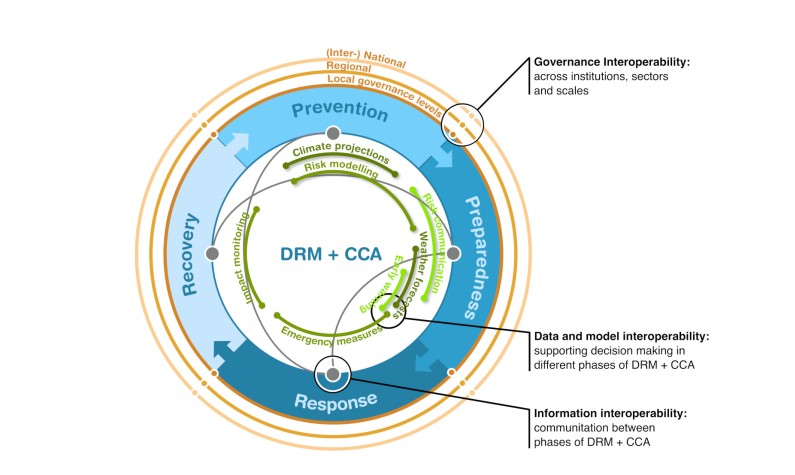Fostering interoperability of data, models, communication, and governance for disaster resilience through transdisciplinary knowledge co-production
Insights from the DIRECTED project*
Authors: Kai Schröter, Pia-Johanna Schweizer, Benedikt Gräler et. al.
Despite considerable efforts and progress in increasing resilience to natural hazards, the adverse socio-economic impacts of extreme weather events continue to increase globally. As climate change progresses, disaster risk management must be aligned with adaptation measures. This perspective paper discusses complications in disaster risk management that have manifested during recent events from an interoperability perspective. A lack of interoperability between data and models, information and communication, and governance is a barrier to successful integrated disaster risk management and climate adaptation. Looking at the challenges involved, the authors suggest that transdisciplinary knowledge co-production is key to promoting interoperability between these components. They outline a framework for enabling knowledge co-production to enhance risk governance by improving ways of facilitating transdisciplinary stakeholder engagement – a novel open-source federated data infrastructure that allows stakeholders to consolidate and connect relevant data sources, models, and information products.
Download the full paper here!
* The DIRECTED project is funded by the European Union through Horizon 2.3.1 – Disaster-Resilient Societies, Grant agreement ID: 101073978
